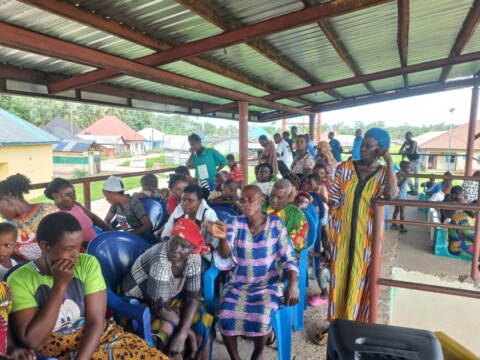The Minister of State for Education, Yusuf Tanko Sununu, has reassured Nigerians that there is no age restriction for students wishing to sit for the National Examination Council (NECO) and West African Examination Council (WAEC) exams. This clarification comes after concerns were raised following reports that the government had imposed a minimum age requirement for these national exams. Sununu addressed these concerns during a press conference held in Abuja to commemorate the 2024 World Literacy Day.
Sununu emphasized that the government has not placed any age limits for students sitting for WAEC or NECO examinations. Contrary to rumors, only the Unified Tertiary Matriculation Examination (UTME), which serves as an entry requirement for university education, will have an age restriction starting in 2025. From that year onwards, candidates will be required to be at least 18 years old to sit for the UTME and gain admission into Nigerian universities.
This decision to restrict the age for UTME does not affect students taking secondary school-level exams like WAEC and NECO. Sununu explained that while the National Policy on Education provides a framework for a child’s academic progression from primary to secondary school, it does not include an age limit for these essential secondary school exams. This clarification means that younger students can still sit for WAEC and NECO, as long as they are academically prepared.
The Minister noted that the National Policy on Education typically suggests that children should start elementary school at the age of six and complete secondary education by around the age of 18. However, this timeline is only a guideline and does not imply that there are strict age limits for taking secondary school exams. As a result, students who are academically advanced or have progressed more quickly through their studies can still participate in these exams without facing any restrictions based on age.
Sununu’s statement has provided much-needed clarity, especially for parents and students who may have been worried about their children’s ability to take the exams. WAEC and NECO are crucial milestones for Nigerian students as they serve as gateways to further education, including university admission. By confirming that there are no age barriers for these exams, the government has ensured that students who are ready for these assessments can continue with their academic journeys without unnecessary hindrances.
The Minister also highlighted the importance of ensuring access to education for all students, regardless of their age. He stressed that education should be inclusive and accessible, and that setting age limits for WAEC and NECO would only limit opportunities for those who are ready to advance academically. This position aligns with the broader goals of Nigeria’s education policy, which aims to promote literacy, knowledge, and opportunities for young people across the country.
As part of his speech, Sununu reiterated that the Federal Government remains committed to improving the quality of education in Nigeria. He noted that reforms in the education sector are focused on increasing access to education, promoting equity, and ensuring that every student, regardless of their background or age, has the opportunity to succeed. This approach reflects the government’s belief in the transformative power of education and its role in shaping the future of Nigeria.
In conclusion, the clarification provided by the Minister of State for Education will undoubtedly ease the concerns of students and parents alike. While the age limit for UTME will take effect in 2025, students can still sit for their WAEC and NECO exams without worrying about age restrictions. This ensures that young and capable students can continue to pursue their academic goals and contribute to the development of the nation through education.





